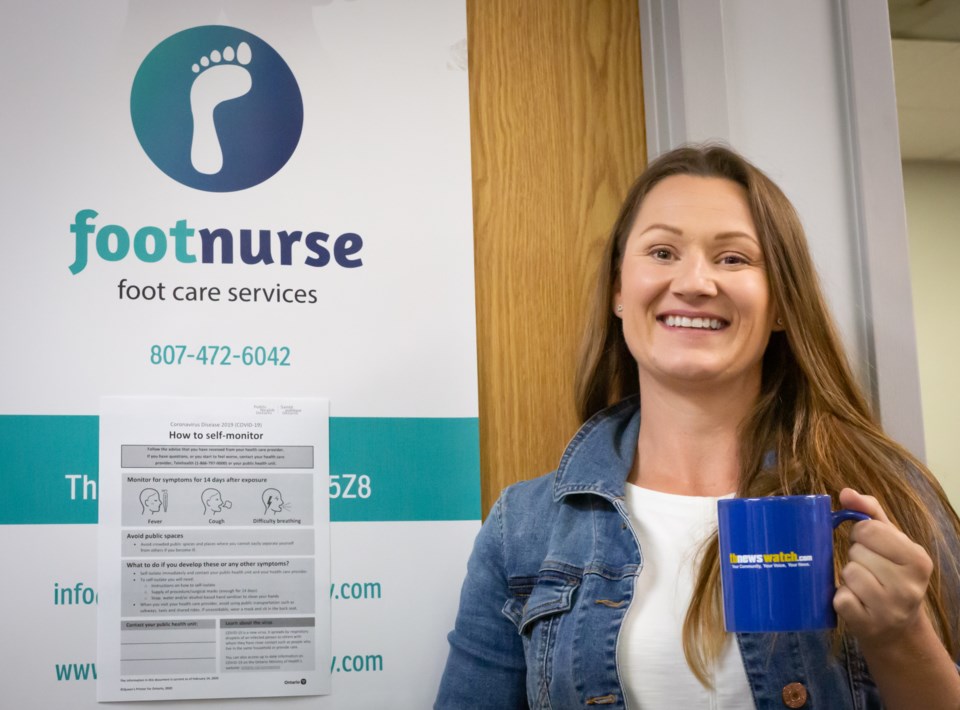THUNDER BAY -- “I wanted to work up north, that’s all I ever wanted to do,” says registered nurse Sacha Torkkeli. “I wanted to be a remote nurse or E.R. nurse.”
Life had other plans for her, though, and she got pregnant with twins. She had been planning to take a job in Nunavut, but decided to reevaluate.
“Working in a hospital setting is really not family-oriented,” she says. She and another friend, also pregnant with twins, decided to start a foot-care service together. (The friend later left the company for another opportunity.)
Foot Nurse started in 2016. To provide foot care in Ontario, you need to be a registered nurse or a registered nurse practitioner, and take advanced training in foot care. The company currently has seven nurses including Torkkeli. Seniors make up about 60% of their clientele. People with mobility issues who cannot cut their own toenails any more, and people with chronic conditions such as diabetes need regular care.
“You can reduce diabetic foot ulcerations by about 80 or 90 per cent with routine foot care, because you can catch it early to prevent complications associated with wounds,” Torkkeli explains. A nurse screens each patient and recommends how often they should receive foot care. She sees diabetic patients every three weeks for the highest risk group, and once every four months for lower-risk patients.
Foot Nurse also sees people with ingrown toenails, corns and calluses, but cannot treat active infections that require antibiotics, and Torkkeli recommends people seek treatment before something gets infected.
Nurses see clients at the clinic on Alloy Drive (inside Superior Home Health Care), at long-term care facilities and also at the clients’ homes. Torkkeli has also gone up north to nine remote First Nations to provide foot care.
Although the services are not covered by OHIP, many private insurers will cover expenses as nursing services. Foot Nurse can also provide a letter advocating on the patient’s behalf.
Many of the nurses at the Foot Nurse are also trained in compression, so they can measure clients for custom-made compression stockings. Torkkeli wore compression stockings when she did shift work at the hospital, because they help with circulation and prevent swelling. People with vascular or renal conditions can also benefit from compression, she says.
Torkkeli wants more people to know that there are devices that can help people put on and take off compression stockings, which can be challenging. It’s not uncommon to see people who don’t wear compression stockings prescribed by their doctor, because they have mobility issues.
“I’m really trying to encourage and educate the public that there are these devices to put them on and take them off easily,” she says.



